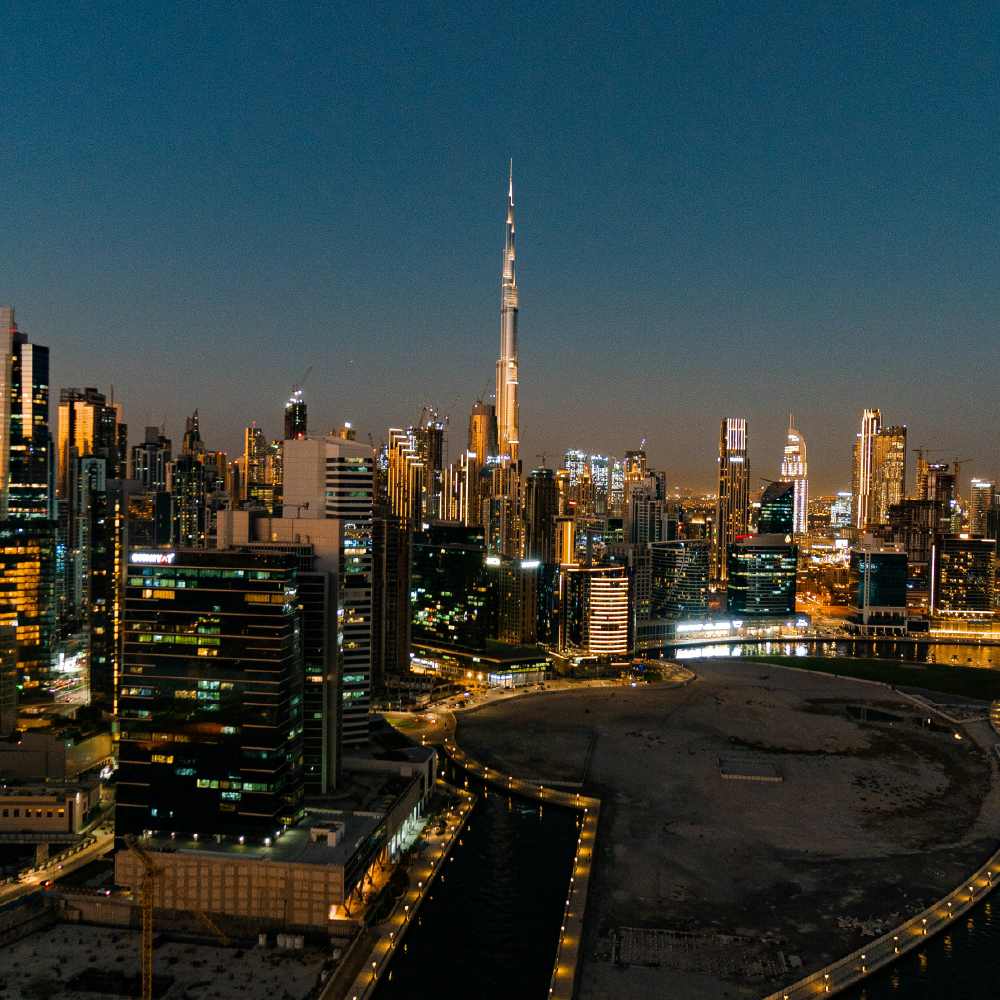
Dubai, a city synonymous with innovation, luxury, and architectural marvels, continues to be a focal point for real estate investment and development. Its skyline, adorned with iconic structures such as the Burj Khalifa and the Palm Jumeirah, is a testament to its ambitious vision and rapid growth. This article delves into Dubai’s real estate market dynamics, exploring current trends, investment opportunities, and future perspectives.
The Evolution of Dubai’s Real Estate Market
Dubai’s real estate sector has significantly transformed over the past few decades. From a modest trading port to a global metropolis, the city’s growth has been driven by strategic planning, visionary leadership, and an open economy. Critical milestones in its development include establishing freehold property laws in 2002, which allowed foreign nationals to own property and the subsequent real estate boom.
The global financial crisis 2008 profoundly impacted Dubai, causing a sharp decline in property prices. However, the market has since rebounded, driven by government initiatives, infrastructure development, and a diversified economy. The lead-up to Expo 2020 (held in 2021 due to the pandemic) further accelerated growth with significant infrastructure and real estate investments.
Current Trends in Dubai’s Real Estate Market
Sustainable and Smart Developments
Sustainability and intelligent technology are at the forefront of Dubai’s real estate trends. Developers increasingly incorporate green building practices, energy-efficient systems, and smart home technologies. Projects like Sustainable City and Dubai South exemplify this trend, offering eco-friendly living spaces with reduced carbon footprints.
Luxury and High-End Properties
Its real estate offerings reflect Dubai’s reputation as a luxury destination. High-end properties, including waterfront villas, penthouses, and branded residences, continue to attract wealthy investors. Areas like Downtown Dubai, Palm Jumeirah, and Dubai Marina are hotspots for luxury real estate, offering unparalleled amenities and breathtaking views.
Affordable Housing Initiatives
In response to the growing demand for affordable housing, Dubai has seen a surge in developments catering to middle-income residents. Communities like Dubai South, Dubailand, and International City offer affordable yet quality living options, making homeownership accessible to a broader demographic.
Short-Term Rentals and Holiday Homes
The rise of platforms like Airbnb has spurred the growth of short-term rentals and holiday homes in Dubai. Investors are capitalizing on this trend by purchasing properties in prime tourist areas to generate rental income. The city’s strategic location, with its year-round events and attractions, makes it a lucrative market for holiday rentals.
Commercial Real Estate and Co-Working Spaces
Dubai’s position as a business hub has fueled demand for commercial real estate, including office spaces, retail outlets, and industrial properties. Additionally, the pandemic has accelerated the adoption of flexible working arrangements, leading to a rise in co-working spaces. Areas like Business Bay, DIFC, and JLT are popular for commercial real estate investments.
Investment Opportunities and Considerations
Residential Properties
Investing in residential properties in Dubai offers the potential for high returns, especially in well-established communities. Investors should consider location, property type, and developer reputation. Off-plan properties, often sold at a discount before construction, present opportunities for capital appreciation.
Commercial Real Estate
Dubai’s thriving business environment makes commercial real estate a viable investment option. Office spaces, retail units, and warehouses in strategic locations can yield attractive rental incomes. Investors should assess the demand-supply dynamics and the quality of tenants to ensure steady returns.
Hospitality and Tourism
The hospitality sector is a cornerstone of Dubai’s economy, driven by a robust tourism industry. Investing in hotels, serviced apartments, or holiday homes can be highly profitable. Proximity to tourist attractions, quality of amenities, and management services are critical factors for success in this segment.
Real Estate Investment Trusts (REITs)
Real Estate Investment Trusts (REITs) offer exposure to Dubai’s real estate market without direct property ownership for those seeking a more diversified and passive investment approach. REITs invest in a portfolio of income-generating properties, providing regular dividends and potential capital gains.
Future Perspectives and Challenges
Expo 2020 Legacy
Expo 2020 has left a lasting legacy on Dubai’s real estate landscape. Developing new infrastructure, residential communities, and commercial hubs around the Expo site in Dubai South is expected to drive long-term growth. The event has also boosted investor confidence, positioning Dubai as a premier global destination.
Economic Diversification
Dubai’s efforts to diversify its economy beyond oil and gas are shaping the real estate market. Technology, healthcare, education, and logistics sectors demand specialized properties. The growth of free zones, offering business-friendly environments, further supports this trend.
Regulatory Reforms
The Dubai government continues implementing regulatory reforms to enhance transparency and investor protection in the real estate sector. Measures such as the Real Estate Regulatory Agency (RERA) and the establishment of escrow accounts for off-plan projects aim to build trust and confidence among investors.
Market Volatility and External Factors
Despite its resilience, Dubai’s real estate market is not immune to global economic fluctuations and geopolitical events. Factors like interest rate changes, oil price volatility, and regional stability can impact market dynamics. Investors should remain vigilant and adopt a long-term perspective.
Sustainability and Climate Change
As global awareness of climate change grows, sustainability will play an increasingly important role in Dubai’s real estate sector. Developers and investors must prioritize eco-friendly practices, renewable energy solutions, and climate-resilient infrastructure to ensure sustainable growth.
Dubai’s real estate market is dynamic and evolving, offering many opportunities for investors and residents. With a strong foundation built on visionary planning, strategic location, and a diversified economy, the city attracts global attention. By staying attuned to current trends, investment opportunities, and future perspectives, stakeholders can navigate the complexities of the market and capitalize on Dubai’s enduring appeal.
Whether you are a seasoned investor or a first-time homebuyer, understanding Dubai’s real estate market dynamics is critical to making informed decisions. As the city continues reinventing itself, the real estate sector remains a cornerstone of its growth and prosperity, promising a bright and sustainable future.